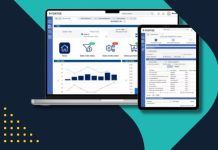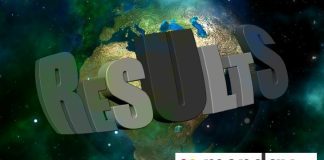
The findings reveal a troubling knowledge gap in many organisations. 87% of IT and business decision makers are using “best guesses” and “hunches” to make decisions. Worse still, 51% of IT decision makers and 32% of business decision makers are using best guesses and hunches for the majority of decision making.
Many businesses are shifting to remote and digital working. The rapid adoption of collaboration, communication, and content apps has become a key culprit behind organisations’ information and knowledge challenges. Nearly all (98%) of respondents say their organisation is experiencing challenges with finding information from their workplace apps. 46% lack certainty that they have all the information they need from their workplace apps to make the best decision. As a result, many organisations are operating on incomplete information, which is hurting their ability to derive accurate knowledge. Furthermore, creating an over-reliance on guesswork in their decision making.
Additional findings include:
- From pre-pandemic to present day, both the amount of information generated from workplace apps (87%). In addition, the number of apps in use at their organisation (86%) has increased, according to respondents
- 58% admit they are not always able to quickly find specific information that they need to carry out their role
- On a typical day, respondents spend 28 minutes trying to locate relevant information from workplace apps to carry out their role. That’s equivalent to nearly 2.5 hours per week, or more than an entire day per month for each employee simply trying to locate relevant information
- 95% experience some degree of difficulty when it comes to acquiring knowledge. (i.e. finding the right information from workplace applications to know how to execute a task with certainty)
- Significant or much improvement is needed across all the tools used for accessing, managing, and storing information. This includes eDiscovery software (84%), cloud storage services (81%), and content or document management systems (80%)
Knowledge is a precious asset for businesses

“Knowledge is a precious asset for businesses, and it all comes down to information and data. It’s the various facts, figures, and context about something, which come together to inform how we make decisions. It helps us to solve problems, and take action,” said Jose Lazares, Chief Product Officer at Onna. “But this is exactly the problem. Businesses today are completely overwhelmed by their data, and it’s hurting their capacity for knowledge.
“Closing the knowledge gap needs to start with better data management. Knowing where your data is. Being able to get to it quickly, and having tighter control over it,” Lazares continued. “Structured data is just the tip of the iceberg, it’s the exponential growth of unstructured data is the issue. Everything in our cloud apps, from text files and slide presentations to video recordings, chat messages, support tickets, and more. This is building up information overload. Enterprises that factor this type of data into their data governance strategies will be in the best position to begin transforming their valuable corporate knowledge into insights that drive competitive advantage and innovation.”
Enterprise Times: What this means for business.
This report highlights two intractable issues in businesses today irrespective of size, borders, sectors or industries. Finding information from workplace applications and turning that information into useful knowledge and corporate action. Disagreed with one of the points made in the report that the adoption of collaboration, communication, and content apps has led to corporate information gaps and knowledge challenges. Analysts such as the Boston Consulting Group have already suggested enterprises are moving toward a more distributed organisation model. Particularly as teams increasingly work collaboratively, autonomously, and remotely. Collaborative work tools should allow team members to organise information and prioritise workload. This should take place within the context of engaging, connecting, and interacting with colleagues, across departments or with external partners.

























